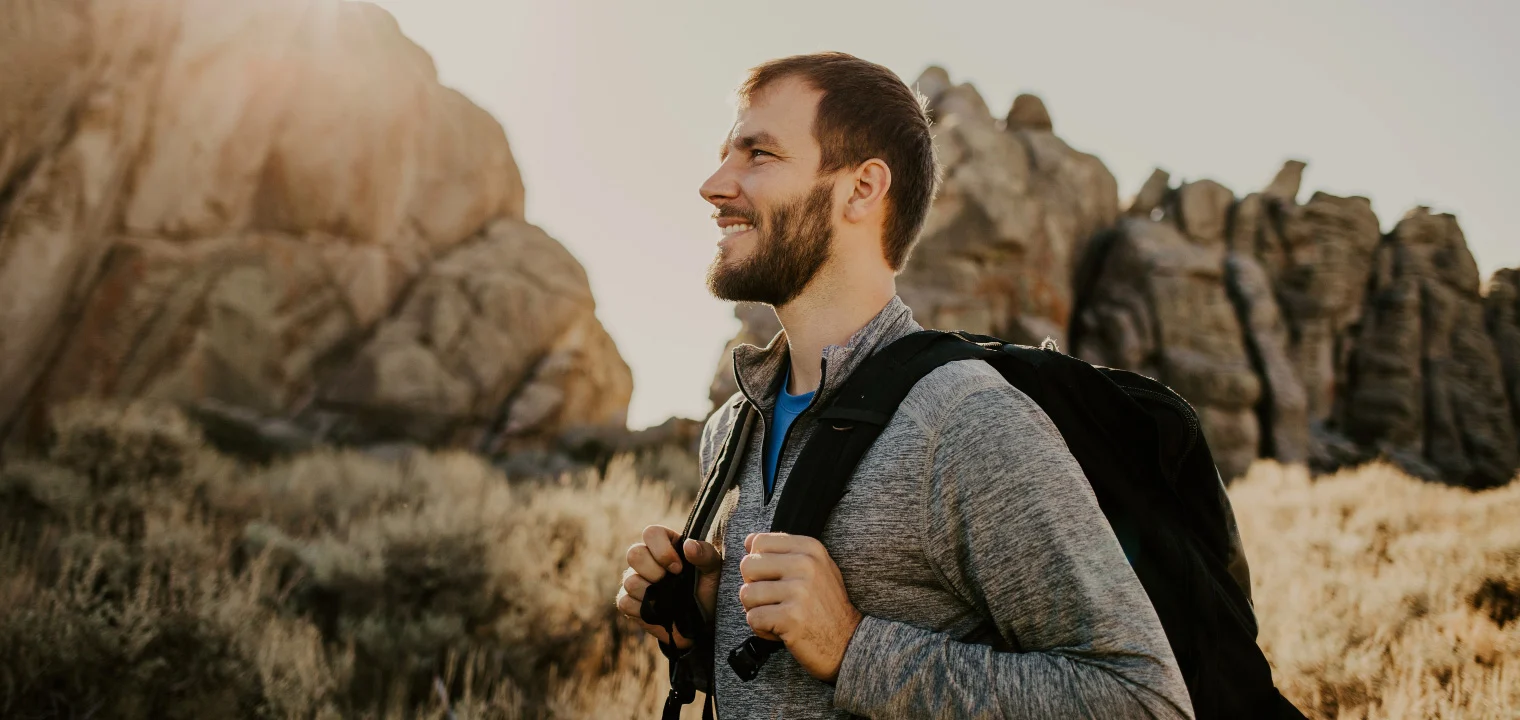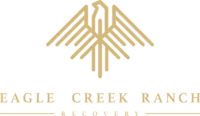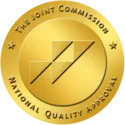Substance Abuse Treatment Programs in Idaho
Addiction is a serious problem that affects millions of people around the world. If you or someone you know is struggling with addiction, it’s important to seek help as soon as possible. There are many different types of addiction treatment programs available to help those struggling with substance use disorders (SUDs).
These programs can vary in terms of length, intensity, and focus. Some treatment methods may be more traditional, while others may utilize more of a holistic approach. At Eagle Creek Ranch Recovery, our drug and alcohol rehab in Idaho provides substance abuse treatment programs for various types of addictions including a combination of detoxification, inpatient treatment, outpatient treatment, counseling, and other modalities to achieve successful recovery outcomes.

Substance use disorder (SUD) is a treatable mental illness that affects a person’s brain and behavior, causing them to be unable to manage their use of substances such as legal or illegal drugs, alcohol, or prescriptions. It is characterized by an overwhelming urge to use the substance, increased tolerance to the substance, and/or withdrawal symptoms when the substance is discontinued.
Addiction is the most severe form of drug abuse, with moderate to severe symptoms. A person can have more than one substance use problem, such as alcohol use disorder and cocaine use disorder, at the same time. Substance abuse issues can have serious consequences for your health, relationships, and overall quality of life. It is also potentially fatal.
People who engage in substance abuse are more likely to have other mental health issues, while persons with mental health disorders are more likely to use substances. This includes people with anxiety disorders, attention deficit hyperactivity disorder (ADHD), bipolar disorder, and more.
It is usually preferable to treat substance abuse and other mental health issues together rather than separately. People who require treatment for an SUD or other mental disorders should consult with a health care specialist for each condition. Because some symptoms overlap between disorders, an accurate diagnosis can be challenging; comprehensive evaluation ensures proper care, including access to trauma treatment Idaho when needed.
It is also critical that the provider adapts treatment to an individual’s specific combination of conditions and symptoms, which may involve behavioral therapies and drugs. Consult your health team and mental health specialists to discover which treatment is best for you.
Contact Eagle Creek Ranch Recovery
Today!
Why Wait? Find The Help You Need By Reaching Out To Us Today! Our Admissions Team Is Standing By.
Choosing the Right Substance Abuse Treatment Programs
When you decide to seek therapy for addiction and mental illness, navigating the many levels of care can be tough. In general, the first step is to have a formal drug and alcohol assessment from a mental health specialist; the evaluation will assist you or your loved one in deciding which program is best for you.
When it comes to choosing an addiction treatment program or mental health treatment, there are a few things to keep in mind. First, you’ll want to consider the severity of your addiction and whether you need a more intensive program. If you have a co-occurring mental health disorder, you may also need to seek medical supervision. Additionally, it’s important to find a program that is tailored to your specific needs and that uses an approach that you’re comfortable with.
Eagle Creek Ranch Recovery offers a variety of inpatient and outpatient drug and alcohol addiction treatment programs to meet the needs of our clients. Our substance abuse treatment programs are designed to help you overcome your addiction and develop the skills you need to stay sober. We offer both traditional and holistic approaches to treatment, so you can choose the specific needs and have an approach that you’re comfortable with.
Substance Abuse Treatment Programs Offered at Eagle Creek
At Eagle Creek Ranch Recovery, we offer several different treatment services for you and your loved ones. Substance abuse treatment programs don’t have to be long and stressful processes. At Eagle Creek, we believe in creating a safe and effective atmosphere for all our clients. We specialize in comfort and care, everyone who enrolls in our program is treated as an individual.
Our levels of care vary and depend on various factors and are on a case-by-case basis. Typically, all recovery journeys start with medical detox and move on to a more specialized residential program. Here’s an in-depth look at some of our drug rehab programs in Idaho:
Medical detoxification is a process that helps people withdraw from drugs in a safe and supervised setting. It is usually the first step in addiction treatment and can last for a few days to a week. During medical detox, people are closely monitored by a team of medical professionals who can provide them with medication to help ease withdrawal symptoms. After medical detox, people usually move on to another level of care, such as inpatient treatment.
Medical detox is part of almost every single case of addiction treatment and remains a vital part of the process. All of our substance abuse treatment programs in Idaho are focused on making sure you start your recovery in the best way possible, through a safe and effective detox.
Residential treatment is a type of addiction treatment that takes place in a live-in setting. This means that people live at the facility where they are receiving treatment. Residential treatment usually lasts for 30 days, but it can be shorter or longer depending on the needs of the individual.
An inpatient treatment program typically includes a combination of individual and group therapy, as well as other activities designed to help people recover from drug addiction. This provides the highest level of successful treatment.
Outpatient rehab programs provide drug and alcohol rehab sessions as well as support groups at various times throughout the week. This plan allows patients to continue with their regular responsibilities and live at home, but they must check into treatment at their scheduled times for counseling and medicine.
Outpatient programs come in a variety of styles, intensity levels, and services — but the overall focus is on counseling, education, and creating a network of support. This type of care is beneficial for people who need the flexibility of a program that can work around their schedules.
Individuals with substance abuse problems who are serious about getting sober can benefit greatly from an outpatient rehab program. They provide you the freedom to continue working and care for your family while you’re recovering.
Intensive outpatient programs (IOP) are used to manage addictions, depression, eating disorders, or other dependencies that do not require detoxification or round-the-clock supervision. They allow patients to go about their daily activities in a way that an inpatient treatment center does not. Unlike residential rehab, which requires clients to live on-site, clients in an intensive outpatient program dwell at home.
IOPs are occasionally used in conjunction with inpatient programs to help patients recover and assist clients in reintegrating more smoothly and effortlessly into their families and communities. They are intended to develop support systems, aid in relapse prevention, and provide new coping skills.
Dual diagnosis treatment is a type of addiction treatment that addresses both substance abuse and mental health disorders. This type of treatment is important because many people who struggle with addiction also have a co-occurring mental health disorder. Dual-diagnosis cases can be especially destructive and stressful.
Dual diagnosis treatment typically includes a combination of individual and group therapy, as well as other activities designed to help people recover from both addiction and mental health disorders. Typically, both mental conditions and drug addiction are treated at the same time but separately.
A 12-step foundation program is a type of addiction treatment program that uses a 12-step approach to recovery. This type of program typically includes meetings, sponsors, and other support systems to help people recover from addiction. At Eagle Creek, we offer a direct guide to these support groups and many others. You aren’t alone in your struggles and it’s time we help you live the life you deserve.
Addiction Therapy
Addiction therapy services are an important component of addiction treatment. Therapists help people understand the underlying causes of their addiction, as well as develop healthy coping skills. Eagle Creek Ranch Recovery, provides several therapy options to promote mental well-being and adventure.
Counseling typically includes individual and group therapy, as well as other activities designed to help people recover from addiction. Some therapy options we offer include:
- Cognitive-behavioral therapy (CBT)
- Dialectical behavior therapy (DBT)
- Family therapy
- Group therapy
- Individual therapy
- Adventure therapy
Several behavioral therapies have also shown promise in treating people who have co-occurring substance use and mental problems, according to research. Addiction counseling may be recommended alone or in conjunction with drugs by healthcare practitioners. Among the effective behavioral interventions for adults with SUDs and other co-occurring mental disorders are:
Individual therapy for addiction is a collaborative process between a therapist and the person receiving treatment. Individual Therapy’s common goal is to inspire change or to improve one’s quality of life. People may seek therapy for assistance with challenges that are difficult to confront on their own.
Therapy can assist people in overcoming barriers to their well-being. It can boost good emotions like compassion and self-esteem. People who attend therapy can learn how to handle challenging situations, make good decisions, and achieve their goals. Many people think that the therapeutic journey of becoming more self-aware is enjoyable. Some people even seek ongoing treatment for self-improvement.
Group therapy for substance abuse is a type of treatment in which clients learn and practice recovery techniques, develop interpersonal skills, and reinforce and expand their support networks. It usually consists of a group of six to twelve people who meet regularly with one or two group therapists. Many people use it to address a specific mental health issue. The group dynamic frequently makes people feel supported as they progress. Whether your aim is personal development, social skills improvement, or something else, these types of support groups may be able to help you achieve it.
CBT for substance abuse is a goal-oriented, structured style of talk therapy. It can help with psychiatric disorders including depression and anxiety, as well as emotional issues like loss and stress. Nonpsychological health issues, such as sleeplessness and chronic pain, can also benefit from CBT. Cognitive-behavioral therapy teaches people how to cope with adversity by challenging erroneous thinking and modifying their behavior.
A mental health expert assists you in taking a careful look at your thoughts and feelings throughout CBT. You’ll realize how your thoughts influence your behavior. CBT can help you unlearn harmful thoughts and behaviors and teach you how to adopt healthier thinking patterns and habits during the recovery process and after.
DBT for substance abuse is a sort of talk therapy for persons who have strong emotions. It’s a typical therapy for patients with borderline personality disorder, but it’s also used to treat other mental health issues.
Dialectical behavior therapy employs the notions of mindfulness and acceptance, or being aware of and sensitive to one’s current situation and emotional condition. DBT also teaches techniques for managing intense emotions and reducing self-destructive behaviors (such as suicidal thoughts, attempts, or urges; self-harm; and substance abuse).
Family therapy for addiction can aid in the healing of strained relationships with your partner, children, or other family members. You may address specific concerns like marital or financial difficulties, conflict between parents and children, or the impact of substance misuse or mental illness on the entire family.
If a relative has a serious mental illness, such as schizophrenia, family therapy sessions can help family members manage; nevertheless, the person with schizophrenia should continue with his or her customized treatment plan, which may include medications, one-on-one counseling, or other various treatment approaches.
Adventure therapy is a form of experiential therapy that incorporates demanding adventure activities to support the process of therapeutic healing. This type of therapy aims to foster healthy identity development, self-belief, determination, and a mindset focused on personal growth. In an adventure therapy program, participants are provided with the chance to participate in a range of unfamiliar activities and encounter different environments throughout their program.
These adventure therapy activities are deliberately designed to have a therapeutic impact. The participants are not merely engaging in activities such as rock climbing or skiing; they are also learning valuable skills such as active listening, prioritizing their safety, managing their emotions, and cultivating resilience as they tackle challenging tasks.
Eagle Creek Ranch Recovery takes therapy to the next level by integrating adventure into our therapeutic approach. Our adventure therapy program combines the healing effects of nature with an individual’s determination to succeed.
Why Choose Eagle Creek Ranch Recovery?
Eagle Creek Ranch Recovery is a top choice for addiction treatment and mental health treatment in Idaho because of its holistic approach to recovery. The program uses a variety of methods to help people recover from addiction, including detoxification, residential treatment, outpatient treatment, and more. The program also offers a variety of therapies, such as individual and group therapy, to help people understand and overcome their addiction.
Don’t wait, you can turn your life around today. If you or a loved one is suffering from addiction, give us a call to learn more about all of our comprehensive substance abuse treatment programs!


Clinical Director
Kendall Maloof is the clinical director at Eagle Creek Ranch Recovery. She is a licensed marriage and family therapist and has held multiple leadership roles before settling here at Eagle Creek Ranch Recovery. Kendall received her master’s degree in marriage and family therapy from the Chicago School of Professional Psychology in 2016. Her career in mental and behavioral health began in 2014 when she took up internships in both the nonprofit and for profit sectors. She interned at multiple reputable companies, such as The Living Success Center and 449 Recovery in California.
In 2019, Kendall became the clinical director of Sunsets Recovery for Woman, a dual diagnosis program in southern California. Kendall is a natural leader. She has an incredible ability to problem solve and stay calm in any situation. Kendall never fails to show up when she is needed, and her calm demeanor makes her team and clients feel at ease. Eagle Creek Ranch Recovery is proud to have Kendall as our clinical director.


